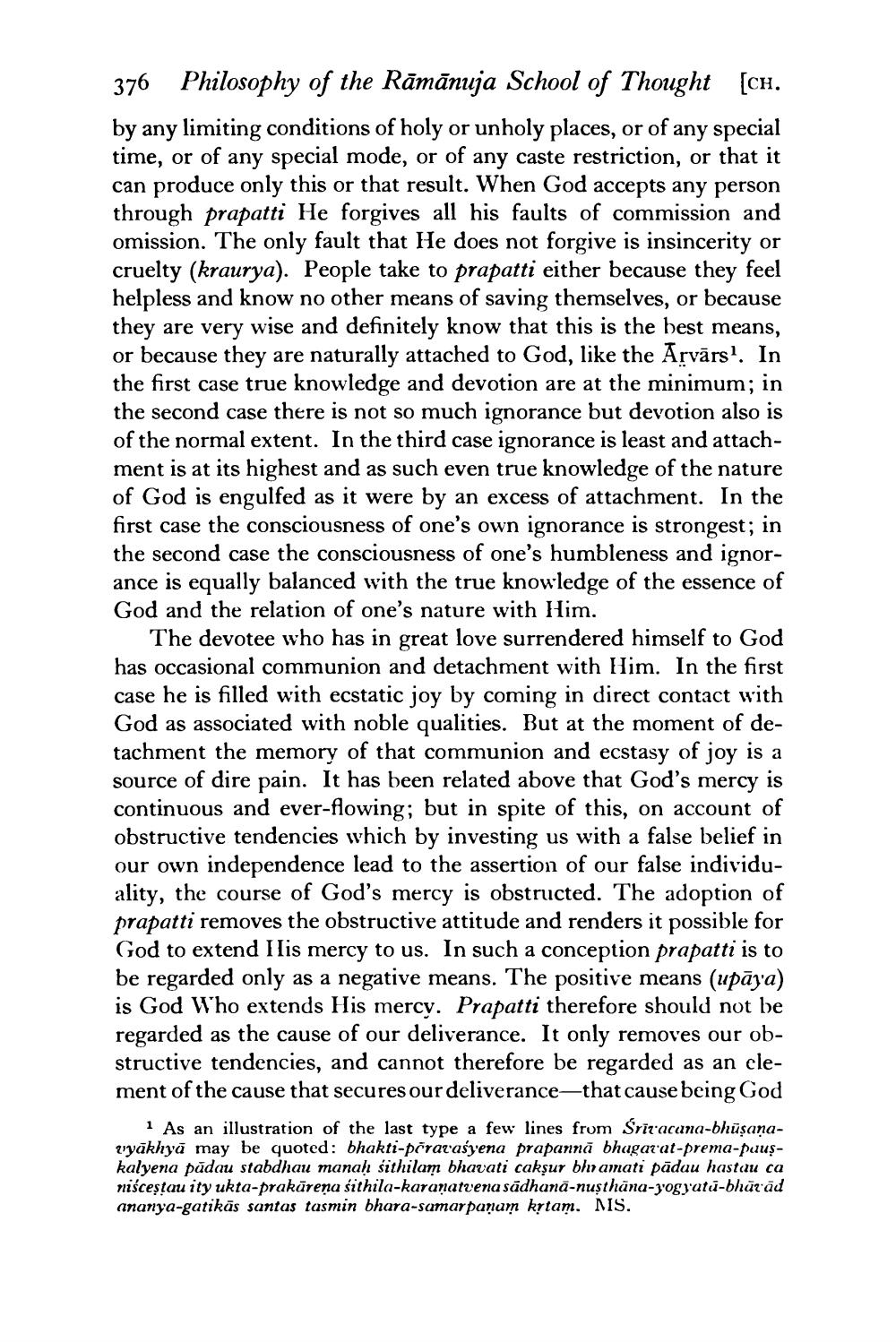________________
376 Philosophy of the Rāmānuja School of Thought [CH.
by any limiting conditions of holy or unholy places, or of any special time, or of any special mode, or of any caste restriction, or that it can produce only this or that result. When God accepts any person through prapatti He forgives all his faults of commission and omission. The only fault that He does not forgive is insincerity or cruelty (kraurya). People take to prapatti either because they feel helpless and know no other means of saving themselves, or because they are very wise and definitely know that this is the best means, or because they are naturally attached to God, like the Arvārs1. In the first case true knowledge and devotion are at the minimum; in the second case there is not so much ignorance but devotion also is of the normal extent. In the third case ignorance is least and attachment is at its highest and as such even true knowledge of the nature of God is engulfed as it were by an excess of attachment. In the first case the consciousness of one's own ignorance is strongest; in the second case the consciousness of one's humbleness and ignorance is equally balanced with the true knowledge of the essence of God and the relation of one's nature with Him.
The devotee who has in great love surrendered himself to God has occasional communion and detachment with Him. In the first case he is filled with ecstatic joy by coming in direct contact with God as associated with noble qualities. But at the moment of detachment the memory of that communion and ecstasy of joy is a source of dire pain. It has been related above that God's mercy is continuous and ever-flowing; but in spite of this, on account of obstructive tendencies which by investing us with a false belief in our own independence lead to the assertion of our false individuality, the course of God's mercy is obstructed. The adoption of prapatti removes the obstructive attitude and renders it possible for God to extend His mercy to us. In such a conception prapatti is to be regarded only as a negative means. The positive means (upāya) is God Who extends His mercy. Prapatti therefore should not be regarded as the cause of our deliverance. It only removes our obstructive tendencies, and cannot therefore be regarded as an clement of the cause that secures our deliverance-that cause being God
1 As an illustration of the last type a few lines from Śrīvacana-bhūṣaṇavyākhyā may be quoted: bhakti-pēravaśyena prapannā bhagavat-prema-pauskalyena padau stabdhau manaḥ śithilam bhavati cakṣur bhramati padau hastau ca niśceştau ity ukta-prakāreņa sithila-karaṇatvena sadhana-nuṣthana-yogyata-bhāvād ananya-gatikās santas tasmin bhara-samarpanam kṛtam. MS.




